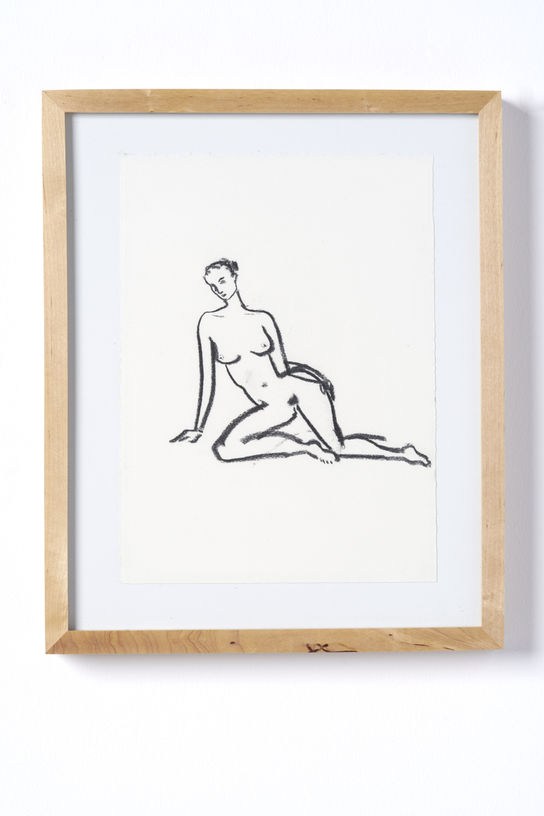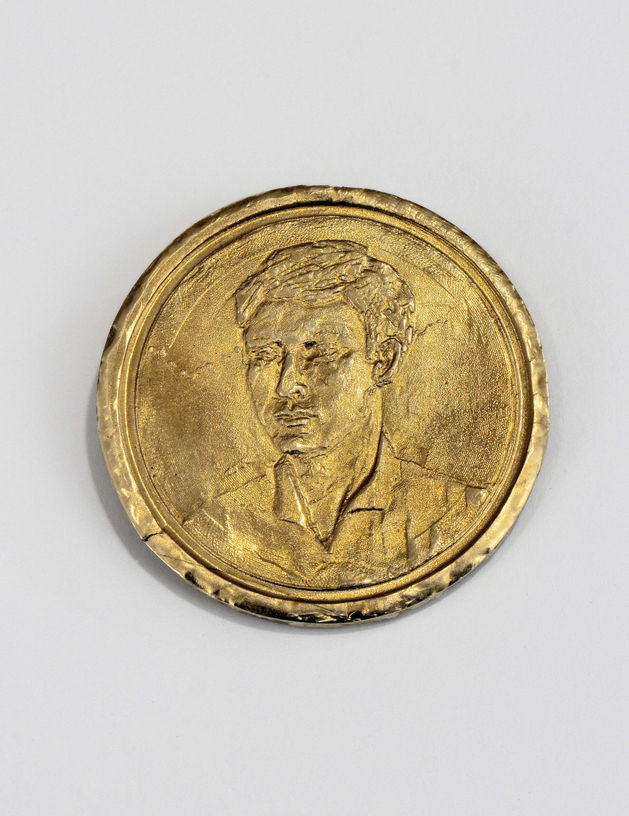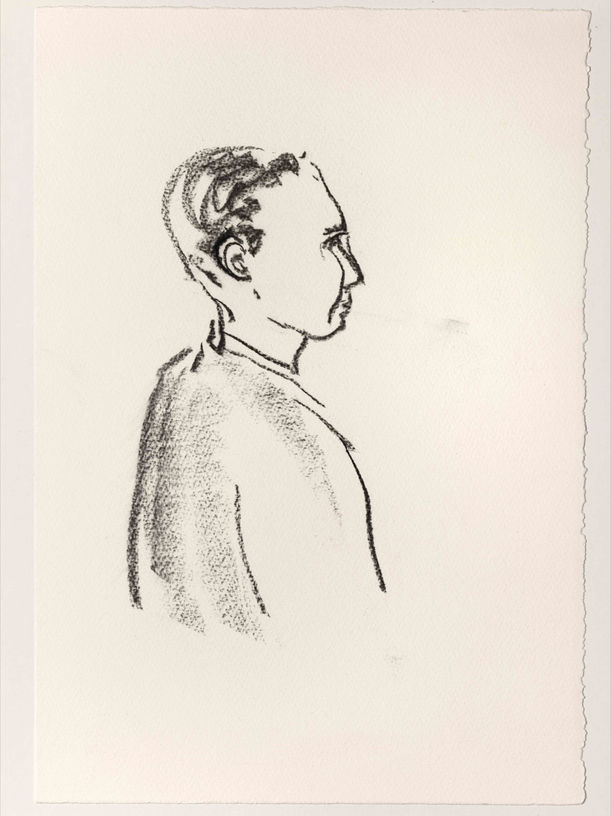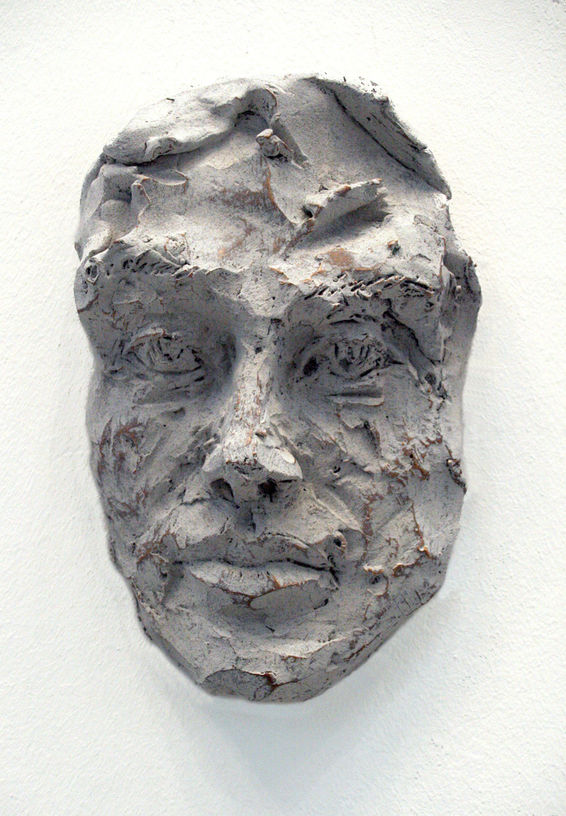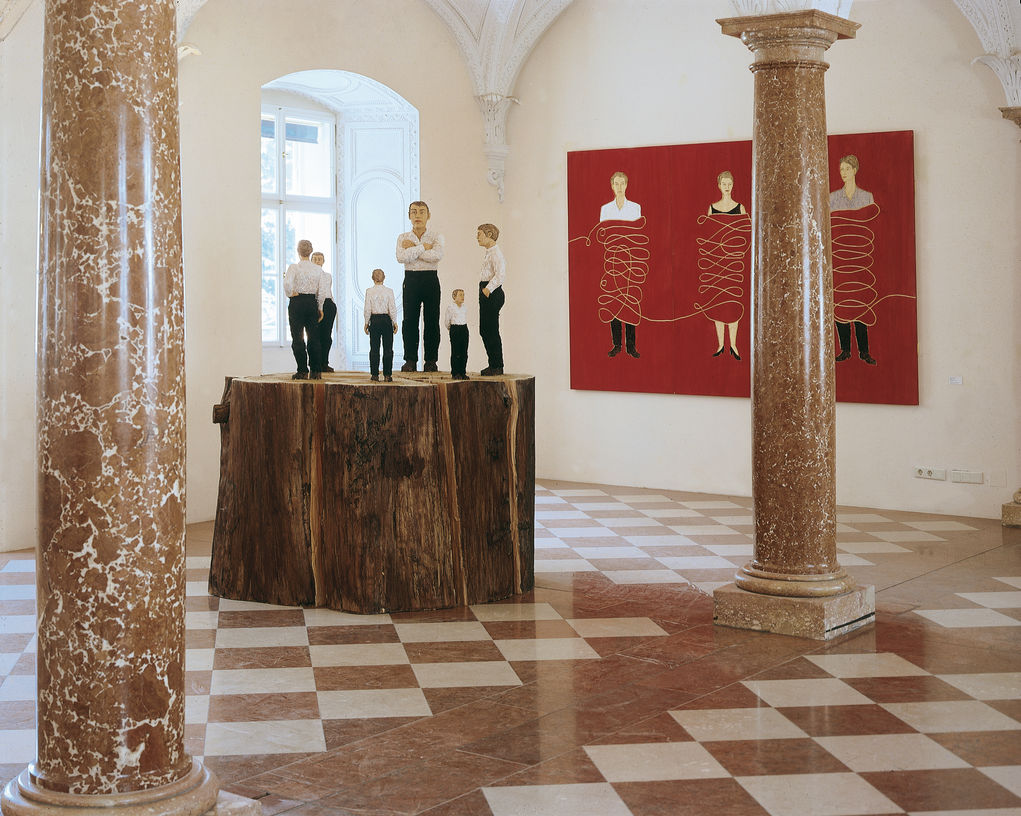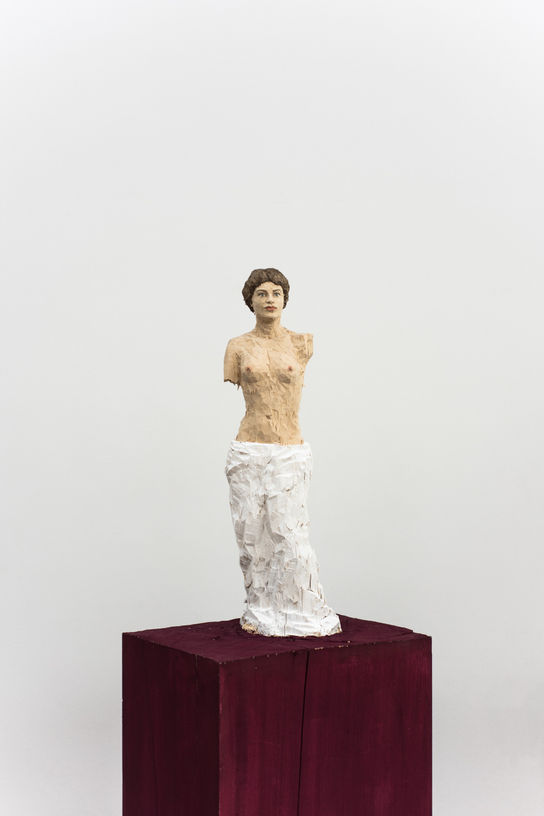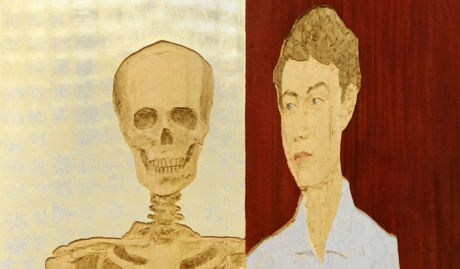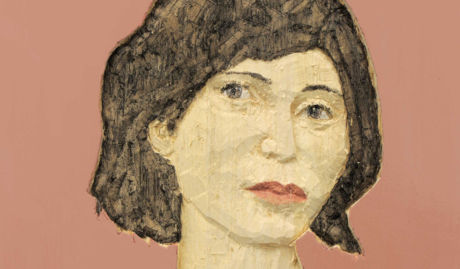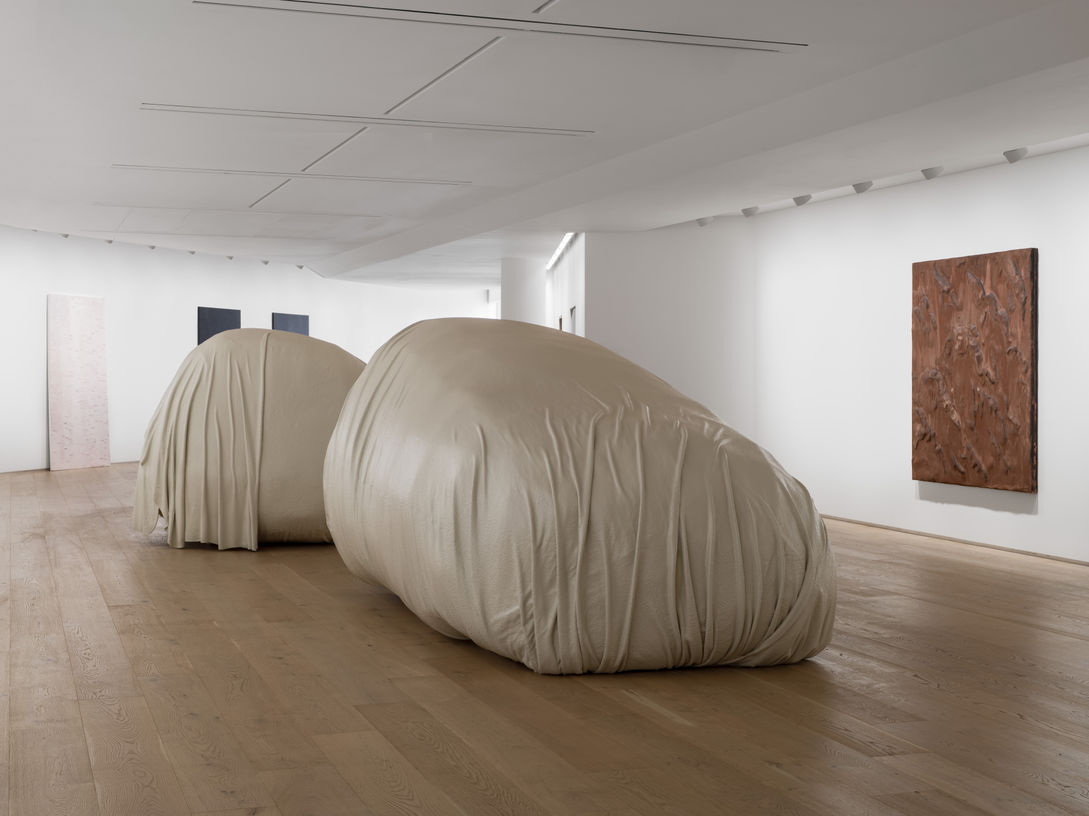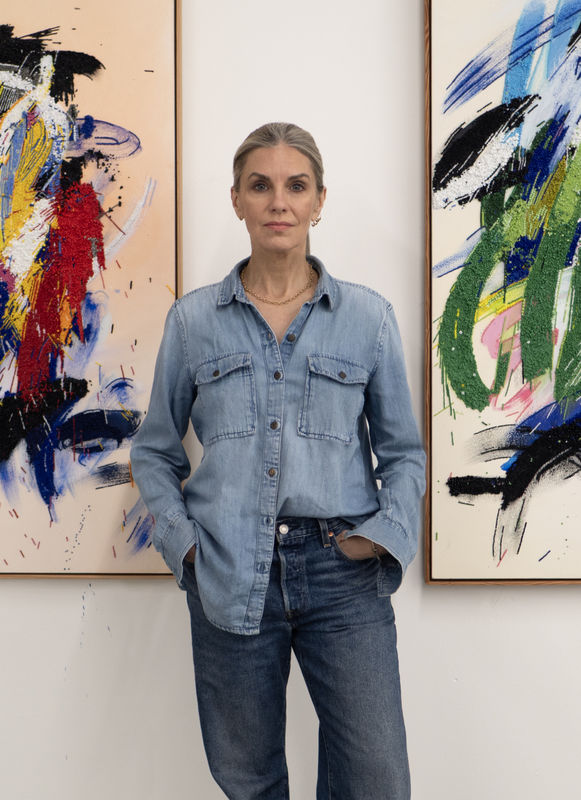
Stephan Balkenhol
Overview
'My sculptures don't tell any stories. Something mysterious is hidden in them. It is not my job to reveal it, but that of the viewer to discover it.'
Known for his wooden sculptures, Stephan Balkenhol carves his figures directly from tree trunks – often wawa or cedar wood – using a mallet and a chisel, without trying to erase the traces left by his tools. This unique technique gives a sense of individuality to each sculpture, further reinforced by the colours chosen to structure and animate the figures. Placed at human height on raw wooden plinths, these men, women and even hybrid beings that seem plucked from a fable or opera, appear both distanced and in tune with the viewer.
Balkenhol's early works – male or female nudes on pedestals – echo classical Greek statues, while carefully positioned features and extraordinarily lifelike postures belie their apparent simplicity. This focus on the human form set him apart from the contemporary art movements of the 1970s, when the emphasis was on abstract, Minimal and Conceptual approaches and figuration had fallen from favour. By the 1990s, his repertoire had expanded to include animals and hybrid creatures, as well as the introduction of architectural motifs and reliefs. Recent works feature contemporary figures dressed in everyday attire. Showing few signs of emotion and bearing no socio-political references, these figures negate and transcend the specifics of any narrative, instead embodying the universal ideas of beings, objects and places.
Known for his wooden sculptures, Stephan Balkenhol carves his figures directly from tree trunks – often wawa or cedar wood – using a mallet and a chisel, without trying to erase the traces left by his tools. This unique technique gives a sense of individuality to each sculpture, further reinforced by the colours chosen to structure and animate the figures. Placed at human height on raw wooden plinths, these men, women and even hybrid beings that seem plucked from a fable or opera, appear both distanced and in tune with the viewer.
Balkenhol's early works – male or female nudes on pedestals – echo classical Greek statues, while carefully positioned features and extraordinarily lifelike postures belie their apparent simplicity. This focus on the human form set him apart from the contemporary art movements of the 1970s, when the emphasis was on abstract, Minimal and Conceptual approaches and figuration had fallen from favour. By the 1990s, his repertoire had expanded to include animals and hybrid creatures, as well as the introduction of architectural motifs and reliefs. Recent works feature contemporary figures dressed in everyday attire. Showing few signs of emotion and bearing no socio-political references, these figures negate and transcend the specifics of any narrative, instead embodying the universal ideas of beings, objects and places.
Balkenhol was born in 1957 in Fritzlar, Germany, and studied at the University of Fine Arts, Hamburg from 1976-82. He lives and works between Kassel and Karlsruhe in Germany, and Meisenthal in France. His work has been shown in numerous solo exhibitions at institutions including the Lehmbruck Museum, Duisburg, Germany (2020–21); Museum Jorn, Silkeborg, Denmark (2020); Kunsthalle Emden, Germany (2018); CAC Málaga (2018); Moscow Museum of Modern Art (2016); Landesmuseum Linz (2014–15); Ravensburg Art Museum, Germany (2014); Museum of Grenoble, France (2010); Deichtorhallen Hamburg (2008–09); and Staatliche Kunsthalle, Baden-Baden (2006). He has also completed a number of public commissions around the world, including a tribute to Auguste Macke that was inaugurated in Bonn in 2018 and a larger-than-life figure of a man in Toronto in 2019.
Videos




















